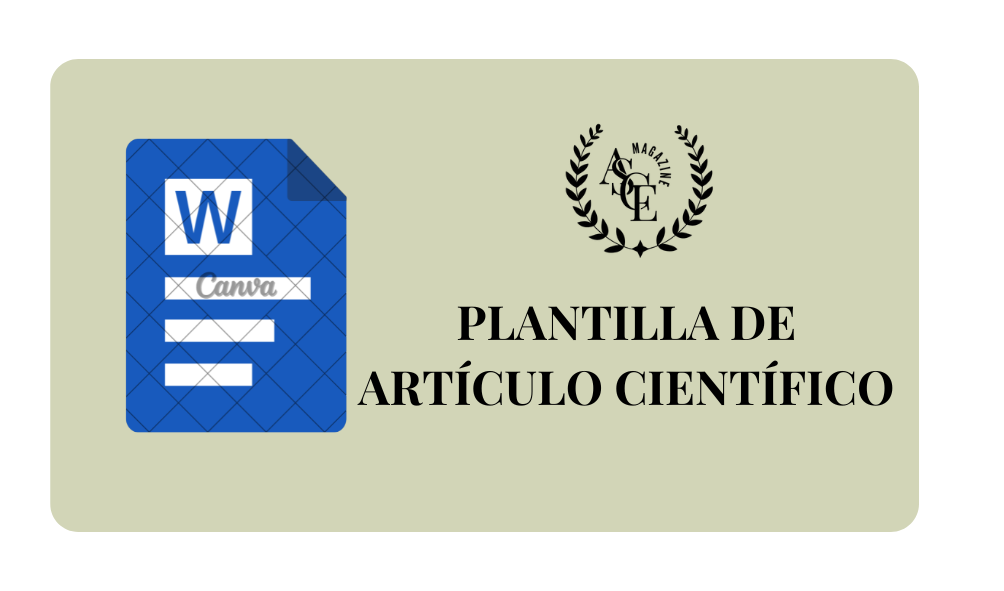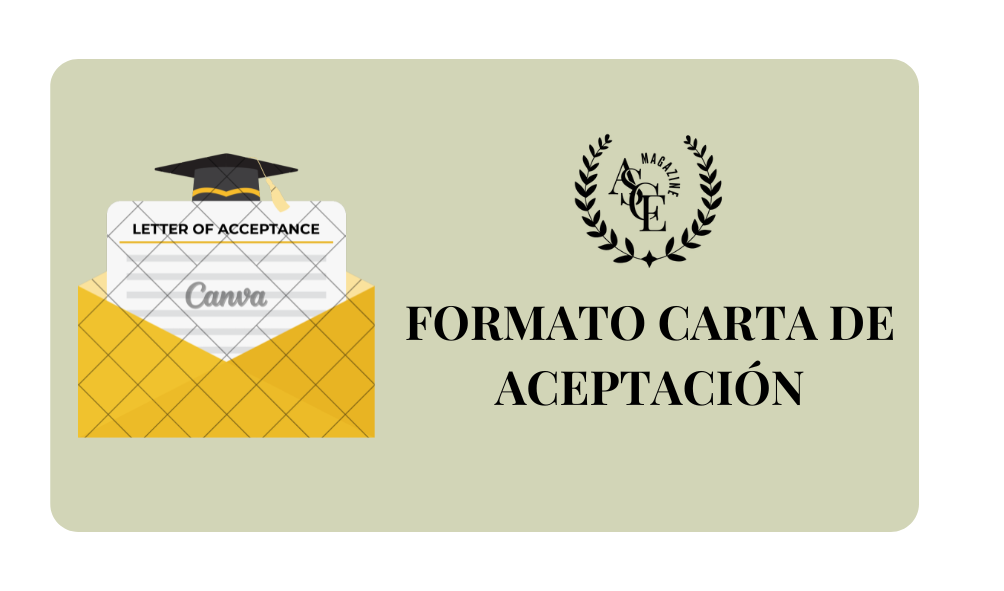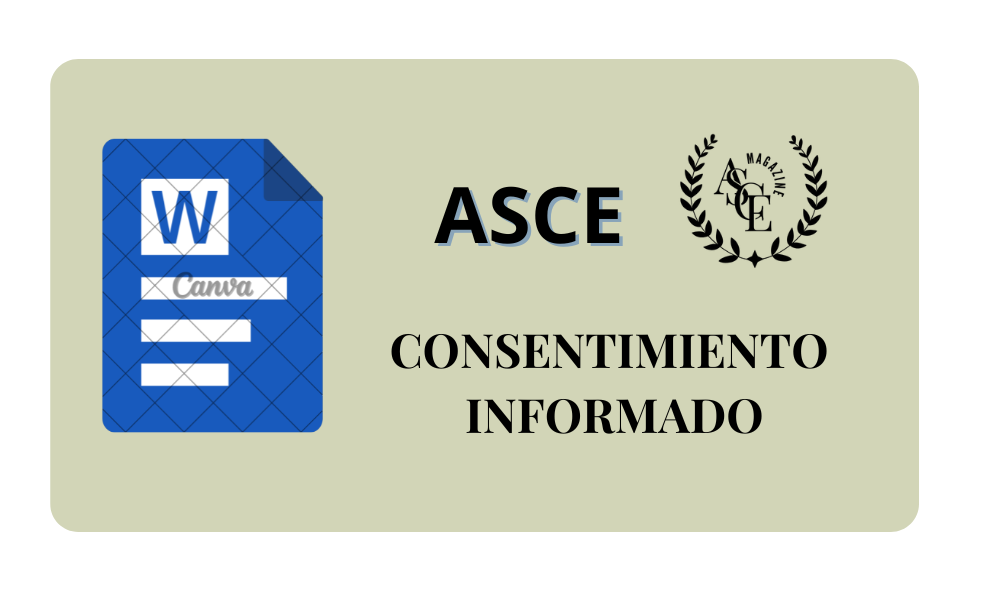El papel del orientador educativo en la prevención del acoso escolar modelos de intervención basados en evidencia
DOI:
https://doi.org/10.70577/ASCE/1089.1115/2025Palabras clave:
Acoso Escolar, Orientación Educativa, Prevención del Acoso, Intervención Basada en Evidencia, Modelos de Intervención, Bienestar Escolar, Clima EscolarResumen
Esta investigación explora el papel estratégico del consejero educativo en la prevención del acoso escolar y se centra en prácticas basadas en la evidencia. El objetivo fue identificar estrategias que se puedan llevar a cabo para minimizar la incidencia y recurrencia del acoso escolar y mejorar la seguridad del entorno escolar. Se aplicó un enfoque de métodos mixtos que consistió en una revisión sistematizada de la literatura de los últimos cinco años (2018-2024) y un estudio de caso múltiple dentro de instituciones de educación primaria y secundaria. La fase cualitativa incluyó la administración de entrevistas a doce consejeros, mientras que la fase cuantitativa involucró el uso de cuestionarios estandarizados a 250 docentes y 400 estudiantes. Las intervenciones más efectivas fueron aquellas que no solo integraron el desarrollo de habilidades socioemocionales, sino que también incluyeron políticas institucionales de respuesta a la violencia. Hubo una reducción estadísticamente significativa en el comportamiento de acoso escolar en aquellos contextos donde el consejero implementa programas de convivencia integral, trabaja de manera colaborativa con los docentes y asume un rol activo de mediador. También hubo un énfasis notable en cambiar la postura al pasar de una postura reactiva a una postura preventiva integradora, donde se fortalecieron las relaciones con las familias, los docentes y los líderes escolares. Las cargas administrativas, la falta de capacitación específica y la ausencia de sistemas estructurados para el monitoreo de los datos escolares fueron algunas de las barreras que también se identificaron. Sin embargo, modelos como KiVa y Apoyo entre Pares mostraron efectividad cuando se adaptaron al contexto escolar específico. En conclusión, el consejero educativo desempeña un papel central en el desarrollo de una cultura de convivencia, siempre que haya respaldo institucional, recursos validados apropiados y un entorno escolar dedicado a la prevención del acoso escolar.
Descargas
Citas
Akçayır, M., & Akyol, B. (2024). Effects of augmented reality storybooks on reading comprehension and cognitive load in secondary education. Journal of Educational Technology & Society, 27(1), 45–63.
AlAli, S., & Al‑Barakat, H. (2024). Utilizing augmented reality to develop creative reading skills in refugee children. Journal of Refugee Education, 3(1), 11–26.
Albán Pazmiño, E. J., Bernal Párraga, A. P., Suarez Cobos, C. A., Samaniego López, L. G., Ferigra Anangono, E. J., Moreira Ortega, S. L., & Moreira Velez, K. L. (2024). Potenciando habilidades sociales a través de actividades deportivas: Un enfoque innovador en la educación. Ciencia Latina Revista Científica Multidisciplinar, 8(4), 3016–3038. https://doi.org/10.37811/cl_rcm.v8i4.12549 DOI: https://doi.org/10.37811/cl_rcm.v8i4.12549
Aldridge, G., Tomaselli, A., Nowell, C., Reupert, A., Jorm, A., & Yap, M. (2024). Engaging parents in technology-assisted interventions for childhood adversity: Systematic review. Journal of Medical Internet Research, 26, e43994. https://doi.org/10.2196/43994 DOI: https://doi.org/10.2196/43994
Bandura, A. (1976). Social learning theory. Prentice-Hall.
Bastian, M., Heymann, S., & Jacomy, M. (2009). Gephi: An open source software for exploring and manipulating networks. Proceedings of the Third International AAAI Conference on Weblogs and Social Media. https://doi.org/10.13140/2.1.1341.1520 DOI: https://doi.org/10.1609/icwsm.v3i1.13937
Bernal Párraga, A. P., Medina Marino, P. A., Cholango Tenemaza, E. G., Zamora Franco, A. F., Zamora Franco, C. G., & López Sánchez, I. Y. (2024). Educación especial en metodologías de discapacidad múltiple intelectual y física: Un enfoque inclusivo. Ciencia Latina Revista Científica Multidisciplinar, 8(3), 3229–3248. https://doi.org/10.37811/cl_rcm.v8i3.11544 DOI: https://doi.org/10.37811/cl_rcm.v8i3.11544
Bernal Párraga, A. P., Tello Mayorga, L. E., Cintia Guisela, A. V., Troya, L. A., Pluas Muñoz, A. M., Mario Efren, C. Q., & Jumbo García, K. J. (2025). El impacto del uso de redes sociales en la autoestima de adolescentes. Ciencia Latina Revista Científica Multidisciplinar, 9(1), 498–517. https://doi.org/10.37811/cl_rcm.v9i1.15733 DOI: https://doi.org/10.37811/cl_rcm.v9i1.15733
Bernal Párraga, A. P., Toapanta Guanoquiza, M. J., Sandra Veronica, L. P., Borja Ulloa, C. R., Esteves Macias, J. C., Dias Mena, B. V., & Orozco Maldonado, M. E. (2024). Desarrollo de habilidades sociales y emocionales a través de proyectos colaborativos en educación inicial: Estrategias inclusivas para estudiantes con necesidades educativas especiales. Ciencia Latina Revista Científica Multidisciplinar, 8(4), 10134–10154. https://doi.org/10.37811/cl_rcm.v8i4.13156 DOI: https://doi.org/10.37811/cl_rcm.v8i4.13156
Bernal, A., & Guarda, T. (2020). La gestión de la información es factor determinante para elaborar estrategias innovadoras en política educativa pública. Iberian Journal of Information Systems and Technologies, E27, 35–48. https://core.ac.uk/download/pdf/487026121.pdf#page=35
Braun, V., & Clarke, V. (2006). Using thematic analysis in psychology. Qualitative Research in Psychology, 3(2), 77–101. https://doi.org/10.1191/1478088706qp063oa DOI: https://doi.org/10.1191/1478088706qp063oa
Bronfenbrenner, U. (1979). The ecology of human development: Experiments by nature and design. Harvard University Press. DOI: https://doi.org/10.4159/9780674028845
Bustamante Mora, F. F., Troya Santillán, B. N., Barboto Sanabria, C. M., Hernández Centeno, J. A., Martínez Oviedo, M. Y., Valencia Trujillo, G. D., & Bernal Párraga, A. P. (2024). El impacto del juego en el desarrollo cognitivo y socioemocional en la educación inicial: Estrategias pedagógicas para fomentar el aprendizaje. Ciencia Latina Revista Científica Multidisciplinar, 8(5), 4201–4217. https://doi.org/10.37811/cl_rcm.v8i5.13886 DOI: https://doi.org/10.37811/cl_rcm.v8i5.13886
Carabias, M. (2024). Aplicación de realidad aumentada para la detección temprana del acoso escolar. Revista de Investigación Educativa de Castilla y León. https://www.diariodevalladolid.es
Çetinkaya Özdemir, F., & Akyol, Z. (2021). Augmented reality in early education: impacts on reading motivation and comprehension. International Journal of Early Childhood Technology, 12(3), 22–39.
Chang, Y.-H., Chao, Y.-C., & Wu, J. J. (2022). Using social network analysis to investigate the social structures of elementary students in bullying. Children and Youth Services Review, 132, 106294. https://doi.org/10.1016/j.childyouth.2021.106294 DOI: https://doi.org/10.1016/j.childyouth.2021.106294
Chatzakou, D., Kourtellis, N., Blackburn, J., De Cristofaro, E., Stringhini, G., & Vakali, A. (2017). Detecting cyberbullying and cyberaggression in social media. ACM Transactions on the Web (TWEB), 11(3), 1–51. https://doi.org/10.1145/2988535 DOI: https://doi.org/10.1145/3343484
Corte Interamericana de Derechos Humanos. (2020). Derechos de la niñez en el sistema interamericano: prevención de la violencia escolar. https://biblioteca.corteidh.or.cr
Creswell, J. W., & Plano Clark, V. L. (2018). Designing and Conducting Mixed Methods Research (3rd ed.). SAGE.
Creswell, J. W., & Poth, C. N. (2021). Qualitative inquiry and research design: Choosing among five approaches (4th ed.). SAGE Publications.
Delgado-Santacruz, C., López, S., & Trujillo, D. (2024). Métodos cualitativos en la intervención educativa: experiencias desde la orientación escolar. Revista Latinoamericana de Investigación Educativa, 29(1), 44–63. https://doi.org/10.5565/rev.rlie.2024.1443
Delgado‑Santacruz, F., Soto, S., Reyes‑Ruiz, L., Vargas, O., García‑Cantillo, C., & Navarro‑Obeid, J. (2024). El docente orientador y su práctica al promover la convivencia. Revista Innova Educativa, 6(1), 89–103. https://revistainnovaeducacion.com/index.php/rie/article/view/890 DOI: https://doi.org/10.35622/j.rie.2024.01.006
Díaz-Aguado, M. J. (2024). Claves para una convivencia escolar libre de acoso. Revista de Educación Inclusiva, 17(1), 9–28. https://revistaeducacioninclusiva.es
Durlak, J. A., Weissberg, R. P., Dymnicki, A. B., Taylor, R. D., & Schellinger, K. B. (2011). The impact of enhancing students’ social and emotional learning: A meta-analysis of school-based universal interventions. Child Development, 82(1), 405–432. https://doi.org/10.1111/j.1467-8624.2010.01564.x DOI: https://doi.org/10.1111/j.1467-8624.2010.01564.x
Ein, D. E. (2025). School counselors and bullying prevention: Practices and barriers. SAGE Open, 15(1), 1–14. https://doi.org/10.1177/21582440211011123
Espelage, D. L., & Hong, J. S. (2022). A decade of bullying prevention: Trends, challenges, and opportunities. American Psychologist, 77(3), 355–369. https://doi.org/10.1037/amp0000961 DOI: https://doi.org/10.1037/amp0000961
Fajardo López, C. E., Yagual Cedeño, L. L., Quezada Sánchez, C. F., Toapanta Guanoquiza, M. J., Moreira Velez, K. L., Sandra Veronica, L. P., & Bernal Párraga, A. P. (2024). El papel de los padres en la educación inicial: Estrategias innovadoras para la participación familiar. Ciencia Latina Revista Científica Multidisciplinar, 8(4), 9881–9900. https://doi.org/10.37811/cl_rcm.v8i4.13139 DOI: https://doi.org/10.37811/cl_rcm.v8i4.13139
Froehlich, D. E., & Brouwer, J. (2025). Applying social network analysis in educational research. International Journal of Research & Method in Education, 48(1), 22–35. https://doi.org/10.1080/1743727X.2023.2281912
Frontiers in Education. (2024). Web & AR tools for multimodal literacy: combining text, audio, and 3D elements. Frontiers in Education, 10, Article 912447.
Gephi. (2024). Social network analysis software https://gephi.org/
Ghardallou, M., Mtiraoui, A., Ennamouchi, D., Amara, A., Gara, A., Dardouri, M., & Zedini, C. (2024). Bullying victimization among adolescents: Prevalence, associated factors and correlation with mental health outcomes. PLoS ONE, 19(3), e0299161. https://doi.org/10.1371/journal.pone.0299161 DOI: https://doi.org/10.1371/journal.pone.0299161
Goodman-Scott, E., Betters-Bubon, J., & Donohue, P. (2022). The school counselor’s role in systemic change: Anti-bullying programs. Professional School Counseling, 25(1), 2156759X221133353. https://doi.org/10.1177/2156759X221133353
Hernández‑Sampieri, R., Fernández‑Collado, C., & Baptista‑Lucio, P. (2014). Metodología de la investigación (6ª ed.). McGraw‑Hill.
Immune Institute. (2023). Augmented reality and motivation in education: a global study. Immune Institute.
Incibe. (2024). Guía de actuación escolar frente al ciberacoso. Instituto Nacional de Ciberseguridad. https://www.incibe.es
Irwin, A., Martínez, M., & Goldstein, M. (2021). Technology-based tools in anti-bullying programs. Computers & Education, 166, 104150. https://doi.org/10.1016/j.compedu.2021.104150 DOI: https://doi.org/10.1016/j.compedu.2021.104150
ISO INCIBE. (2025). Norma de calidad en instrumentos digitales de evaluación escolar. https://www.incibe.es/normas2025
Jueajinda, S., Tippawan, C., & Wongwanich, S. (2021). Social intelligence counseling intervention to reduce bullying behaviors among Thai lower secondary school students: A mixed-method study. Journal of Preventive Medicine and Public Health, 54(5), 340–351. https://doi.org/10.3961/jpmph.21.110 DOI: https://doi.org/10.3961/jpmph.21.110
KiVa. (2020). KiVa Antibullying Program. University of Turku. https://www.kivaprogram.net
Krebs, V. E. (2013). Centrality in social networks. En Using Big Data in Academic Environments. Procedia Economics and Finance, 33, 277–286. https://doi.org/10.1016/j.pef.2015.02.028 DOI: https://doi.org/10.1016/S2212-5671(15)01712-8
Madrid, F. (2017). Plataformas digitales en el entorno educativo: análisis comparativo. Revista Iberoamericana de Tecnología Educativa, 13(2), 45–59. https://dialnet.unirioja.es
Martínez, S., & Rojas, L. (2024). Co-designing augmented reality experiences in Colombian schools: implications for critical reading. Revista Colombiana de Tecnología Educativa, 18(2), 120–138.
McLeod, K., Wroblewski, A., & Shields, S. (2024). Promoting emotion understanding in middle childhood: A systematic review and theory synthesis of SEL programs. Developmental Review, 62, Article 101-118. https://doi.org/10.1016/j.dr.2024.101118 DOI: https://doi.org/10.1016/j.dr.2024.101118
Menesini, E., & Salmivalli, C. (2023). Bullying in schools: The state of knowledge and effective interventions. Psychological Science in the Public Interest, 24(1), 1–35. https://doi.org/10.1177/15291006221149894
Montaño Ordóñez, J. A., Pilco Machoa, M. C., Suarez Cobos, C. A., Bravo Alcívar, G. M., Pozo Vintimilla, L. R., Pozo Vintimilla, S. del C., & Bernal Párraga, A. P. (2024). El papel del directivo escolar en la promoción de la inclusión en escuelas de educación básica. Ciencia Latina Revista Científica Multidisciplinar, 8(4), 10732–10750. https://doi.org/10.37811/cl_rcm.v8i4.13222 DOI: https://doi.org/10.37811/cl_rcm.v8i4.13222
Mueller, P., & Brandt, A. (2023). Best practices in educational research ethics: informed consent, confidentiality, and anonymization. Journal of Education and Ethics, 15(2), 112–127. https://doi.org/10.1016/j.jeate.2022.11.005
Mundana, A. (2024). Effects of immersive augmented reality environments on memory and problem-solving skills. Computers & Education Technologies, 15(2), 77–94.
NCBI. (2020). Using Gephi in health-related network research. National Center for Biotechnology Information. https://www.ncbi.nlm.nih.gov
Nectarestudio. (2018). Apps educativas para la prevención del acoso escolar: evaluación y desarrollo. https://nectarestudio.com/informes/apps-bullying
Olweus, D. (2011). OBPP—Olweus Bullying Prevention Program. University of Bergen. Recuperado de https://www.uib.no/en/rg/72546/olweus‑bullying‑prevention‑program
Olweus, D., & Limber, S. P. (2023). Updating the Olweus Bullying Prevention Program: Evidence-based strategies for modern schools. Child Development Perspectives, 17(2), 84–90. https://doi.org/10.1111/cdep.12479 DOI: https://doi.org/10.1111/cdep.12479
Rivadeneira Díaz, Y. M., Poma Jiménez, M. A., & Cajas Sigüencia, T. A. (2019). Intervención psicoeducativa para disminuir el acoso escolar en estudiantes de Loja. Política y Contraste, 4(7), 254–270. https://doi.org/10.26754/politcontraste.2019.4.7.254 DOI: https://doi.org/10.23857/pc.v4i7.1033
Salmivalli, C. (2020). KiVa Anti-bullying Program: Overview and evidence of effectiveness. Journal of School Psychology, 78, 30–45. https://doi.org/10.1016/j.jsp.2020.03.005 DOI: https://doi.org/10.4324/9781351201957-3
Salmivalli, C., Kärnä, A., & Poskiparta, E. (2016). The Bullying Questionnaire: Development, reliability and validity. Aggressive Behavior, 42(4), 267–281. https://doi.org/10.1002/ab.21623 DOI: https://doi.org/10.1002/ab.21623
Smith, P. K., Kwak, K., & Toda, Y. (2021). School bullying in different cultures: Eastern and Western perspectives. Cambridge University Press. https://doi.org/10.1017/9781108615080
Strohmeier, D., & Spiel, C. (2020). Bullying and victimization research: Advances and future challenges. European Journal of Developmental Psychology, 17(5), 589–607. https://doi.org/10.1080/17405629.2020.1760511
Swank, J. M., Lambie, G. W., & Witta, E. L. (2019). An exploratory factor analysis of the school counselor bullying survey. Professional School Counseling, 22(1), Article http://dx.doi.org/10.1177/2156759X19851465 DOI: https://doi.org/10.1177/2156759X19851465
Traud, A. L., Mucha, P. J., & Porter, M. A. (2011). Social structure of Facebook networks. Physica A: Statistical Mechanics and its Applications, 391(16), 4165–4180. https://doi.org/10.1016/j.physa.2011.05.021 DOI: https://doi.org/10.1016/j.physa.2011.12.021
Ttofi, M. M., & Farrington, D. P. (2011). Effectiveness of school-based programs to reduce bullying: A systematic and meta-analytic review. Journal of Experimental Criminology, 7(1), 27–56. https://doi.org/10.1007/s11292-010-9109-1 DOI: https://doi.org/10.1007/s11292-010-9109-1
UNESCO. (2019). Behind the numbers: Ending school violence and bullying. United Nations Educational, Scientific and Cultural Organization. https://unesdoc.unesco.org DOI: https://doi.org/10.54675/TRVR4270
Van Hee, C., Verhoeven, B., & Hoste, V. (2018). Detection of cyberbullying across social media platforms. Information Processing & Management, 54(5), 1136–1150. https://doi.org/10.1016/j.ipm.2018.07.001 DOI: https://doi.org/10.1016/j.ipm.2018.07.001
Vargas Castro, M. F., Cabrera Brown, M. N., Moreira Quiroz, H. B., Martínez Oviedo, M. Y., Bonilla Villegas, T. J., Bernal Párraga, A. P., & Bonilla Villegas, S. I. (2024). Estrategias psicológicas para mejorar la autoestima y el rendimiento académico en estudiantes de educación general básica. Ciencia Latina Revista Científica Multidisciplinar, 8(5), 6930–6945. https://doi.org/10.37811/cl_rcm.v8i5.14112 DOI: https://doi.org/10.37811/cl_rcm.v8i5.14112
Álvarez-Díaz, M., Gallego-Acedo, C., Fernández-Alonso, R., Muñiz, J. y Fonseca-Pedrero, E. (2022). Análisis de Redes: una Alternativa a los Enfoques Clásicos de Evaluación de los Sistemas Educativos. Psicología Educativa, 28(2), 165 - 173. https://doi.org/10.5093/psed2021a16 DOI: https://doi.org/10.5093/psed2021a16
Weber, I., Garimella, K., & Mejova, Y. (2020). Cohesion and divergence in political communication networks. Social Network Analysis and Mining, 10(1), 45. https://doi.org/10.1007/s13278-020-00658-6
World Medical Association. (2024). Declaration of Helsinki: Ethical Principles for Medical Research Involving Human Subjects (8ª rev.). JAMA, 331(16), 1573–1574. https://doi.org/10.1001/jama.2024.15821
Yaule Chingo, M. B., Suarez Cobos, C. A., Dias Pilatasig, M. J., Olalla Faz, M. I., Zamora Batioja, I. J., Arequipa Molina, A. D., & Bernal Párraga, A. P. (2024). Análisis del impacto de estrategias de inclusión en el aprendizaje de niños con capacidades especiales. Ciencia Latina Revista Científica Multidisciplinar, 8(4), 5408–5425. https://doi.org/10.37811/cl_rcm.v8i4.12757 DOI: https://doi.org/10.37811/cl_rcm.v8i4.12757
Zhao, Q., Zhang, S., & Tang, H. (2023). Real-time monitoring and intervention of school bullying using mobile technologies. Computers in Human Behavior Reports, 9, 100127. https://doi.org/10.1016/j.chbr.2022.100127
Descargas
Publicado
Cómo citar
Número
Sección
Licencia
Derechos de autor 2025 Lorena Elizabeth Tello Mayorga, Dalila Johanna Bowen Castro, Alexandra Maritza Rosero Ubidia, Carlos Alberto Rea Elizalde, Augusto Paolo Bernal Parraga

Esta obra está bajo una licencia internacional Creative Commons Atribución-NoComercial-SinDerivadas 4.0.
Eres libre de:
- Compartir : copiar y redistribuir el material en cualquier medio o formato
- Adaptar : remezclar, transformar y desarrollar el material
- El licenciante no puede revocar estas libertades siempre y cuando usted cumpla con los términos de la licencia.
En los siguientes términos:
- Atribución : Debe otorgar el crédito correspondiente , proporcionar un enlace a la licencia e indicar si se realizaron cambios . Puede hacerlo de cualquier manera razonable, pero no de ninguna manera que sugiera que el licenciante lo respalda a usted o a su uso.
- No comercial : no puede utilizar el material con fines comerciales .
- CompartirIgual — Si remezcla, transforma o construye sobre el material, debe distribuir sus contribuciones bajo la misma licencia que el original.
- Sin restricciones adicionales : no puede aplicar términos legales ni medidas tecnológicas que restrinjan legalmente a otros hacer algo que la licencia permite.





































